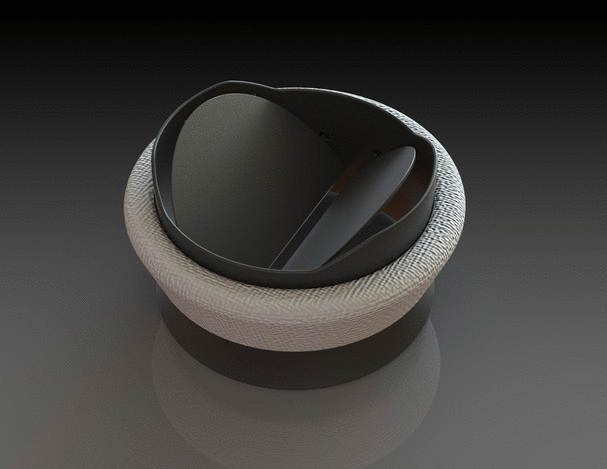Reduced anticoagulation after mechanical aortic valve replacement: Interim results from the Prospective Randomized On-X Valve Anticoagulation Clinical Trial randomized Food and Drug Administration investigational device exemption trial
Cardiac surgeons, industry and increasingly patients with heart valve disease, are always on the lookout for the perfect heart valve prosthesis.
There are 2 main types of prostheses that are used to replace diseased valves, mechanical and biological.
Mechanical are now (after the Bjork Shiley disaster of the 1980s) ultrareliable and as stated by the wife of a patient of mine recently, will last 400 years. The big disadvantage of this type of prosthesis is that every patient with a mechanical prosthesis has to be anti coagulated for the rest of his or her natural life. If not they are at risk of valve thrombosis, where the valve literally seizes up (rapidly fatal in most instances) or thromboembolism where small clots form in the hinge area of the prosthesis and then fly off to various other organs, most seriously the brain causing a major stroke.
Taking anticoagulants (warfarin being the commonest) is a real bind for the patient because they need to have frequent blood tests and because the treatment is affected by other medications, foodstuffs and alcohol intake. In addition, the thinning of the blood by anticoagulant drugs makes the patient susceptible to serious bleeding complications.
The alternative type of prosthesis is a biological one i.e. one that looks like a natural native valve. In the absence of other medical disorders, the patient does not need to take warfarin - which is great news. The bad news (there is always bad news!!) is that these types of prostheses do not last forever and degenerate over time. If you have decades of life ahead of you then it is likely that the prosthesis will need replacing at some point with a potentially dangerous second heart operation .
The study highlighted above compared bleeding (caused by warfarin) and thromboembolic events (caused by NOT enough warfarin) following aortic valve replacement with a relatively new design of mechanical prosthesis in 2 groups of patients - one group took a smaller dose of Warfarin to achieve an INR (bleeding test) of 1.5-2 and the other took a higher dose of warfarin to achieve an INR of 2-3. The (unsurprising) finding of the study was that the patients who took the lower dose of warfarin had significantly fewer bleeding complications. The cost of taking a lower dose of warfarin was according to the authors non-significant - i.e. a small increase in thromboembolic complications.
Now it may have been non-significant (a statistical outcome suggesting that there is a 95% chance that difference occurred by chance) for the authors but not for the 1 or more extra patients who suffered a stroke.
This new prosthesis may very well be different and cause fewer strokes than the other mechanical prosthesis on the market, but I'm afraid this study does not prove it.
What is required is a head to head comparison with 1 or other types of prostheses in common use - a so called Randomised controlled trial where allocation of the valve is completely random and where the amount of warfarin given (i.e. the INR test) is the same for all patients in the trial. Such trials are hugely expensive but until it is done, claims to be different remain in my opinion unconvincing.

No comments:
Post a Comment
I AM SURE YOU HAVE SOMETHING TO SAY ABOUT WHAT YOU HAVE JUST READ, SO PLEASE LEAVE A COMMENT!